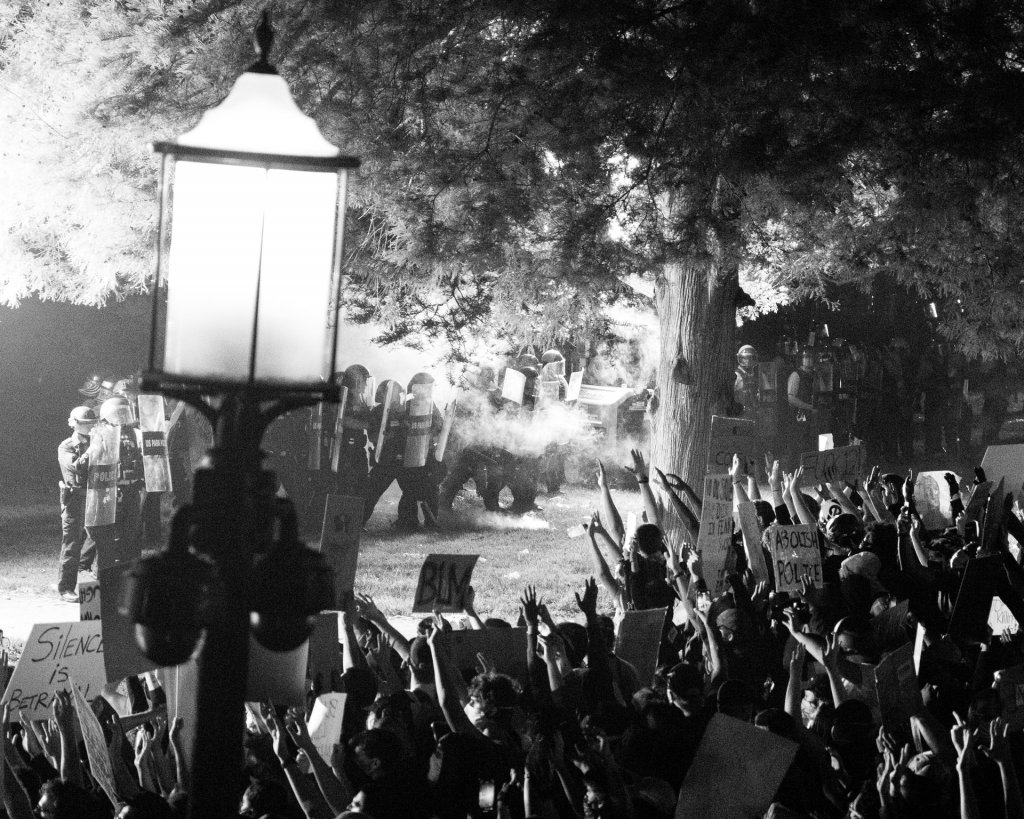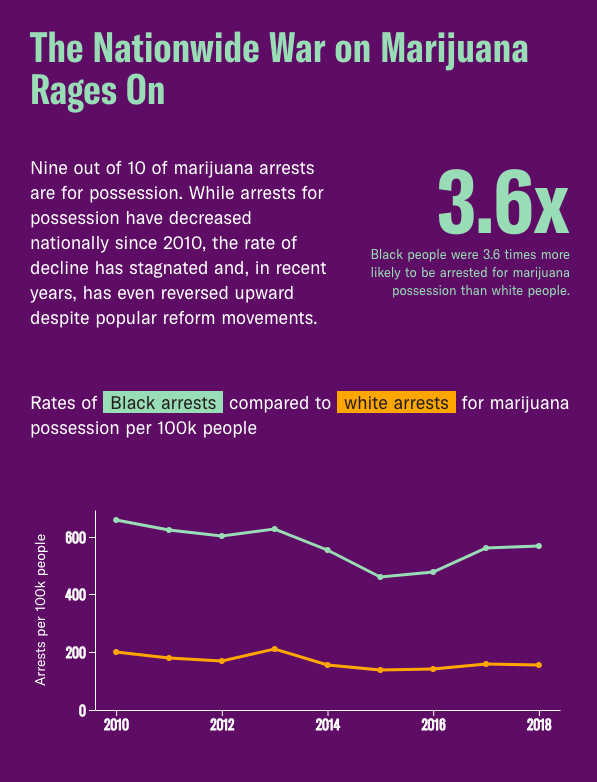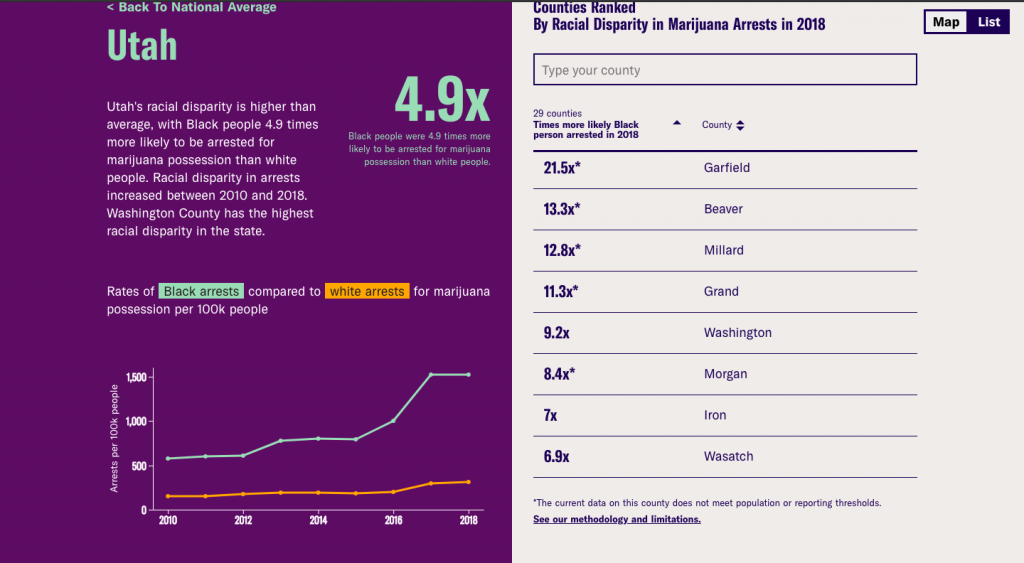Michael Thompson was 43 when he was arrested and imprisoned over 25 years ago for selling cannabis to an undercover informant in Michigan. His parents and only son have all died since his incarceration. Michigan, meanwhile, recently legalized recreational cannabis, and is expecting to generate a potential 1.7 billion dollars each year. Michael, now 68, is expected to serve those next 35 years behind bars, should he live that long.
Ferrel Scott was handed a life sentence for selling cannabis—just four years prior to legalization. Just four years before the money began to pour in for entrepreneurs and corporate cannabis companies. The list is long, and mostly black, a factor that dramatically increases an individual’s odds of arrest, imprisonment, and even the severity of the average sentence.
Michael Thompson and Ferrel Scott are just two of an estimated 40,000 people still behind bars for cannabis related crimes, the vast majority of whom are people of color.

Black and brown communities across the country have been routinely targeted by a system that arrests and incarcerates one in every three black men at some point in their lives. The War on Drugs, and the cannabis-justified targeting of black Americans at an average of almost four times that of their white counterparts, has been a tool used for decades to police and oppress minority communities. Here in Wasatch County, Utah, where we have our lab, we have the worst statistics in the state of Utah (which, let’s be honest, is already bad) If you are black, you are almost EIGHT times as likely to be arrested for cannabis related crimes than if you are white.
As the status and perception of cannabis changes, the dollar signs grow and the laws shift, effectively keeping the balance of power from changing. Over 80% of cannabis business owners are white, and most states have instituted a licensure system that rewards wealth and connection, excluding many of the communities most hurt by prohibition.
It isn’t hard to miss the coded racism rooted in legislation, regulation, and policies that keep black and brown Americans from participating. From the 1930’s overt racism that caused the prohibition of cannabis (legislation cited it’s propensity to cause black people to “forget their place”), to today’s licensing processes, ownership, and management structures that uphold the status quo of white wealth and black criminality, the exclusion of minorities in the cannabis space is no accident.
As the cannabis industry is propelled from criminal to corporate America, the top cannabis vendors are no longer prosecuted criminals, but entrepreneurs poised to make millions. It is the responsibility of everybody involved to ensure that policies and practices across the industry are not only equitable, but actively work to incorporate people of color, and to benefit the very communities who have borne the brunt of the last century of racist and heavy-handed drug policy.
Here are some ways we think that the cannabis community can help to deconstruct systemic racism to reconstruct a better industry for all. What else should the industry be doing? We want to hear from you, please reach out with additional suggestions!

Support legislation to expunge cannabis-related offenses.
Most states have laws forbidding participation in the legal cannabis industry by those who have prior cannabis-related arrests—a category that affects more than four times as many black Americans as white, despite similar usage between the groups. Cannabis production in Utah went from a major felony to an essential health care business overnight, and it’s time for justice to catch up.
Support legislation that helps make licenses and business opportunities more accessible to people of color and women.
States should ensure that the limited licenses go not only to white, male-owned corporations, but also to minority business owners and communities that have been hit disproportionately by biased policing. Women and minorities are underrepresented in venture capital spaces, and that missing representation means missing out on the incredible opportunities cannabis presents. States should award licenses, and thus the opportunity to accrue wealth, to human-scale operations in communities that have been historically deprived of that opportunity.
Invest in communities of color and encourage legislators to funnel tax revenue from cannabis into programs that support social and racial equity.
Resources need to be allocated to housing, education, police reform, addiction recovery, and other programs for the communities hardest hit by disproportionate policing and the War on Drugs. Companies should set goals to support organizations that work to address racial disparity in cannabis companies, culture, and law enforcement.
Ensure diverse hiring practices
Things won’t change until the racial and gender identities of C-suite executives, board members, owners, and management reflect the diversity of our country.
Attend legislative meetings and government sessions to advocate for policies that focus on equity.
Support bills that actively work to include diversity and ensure that local people from marginalized communities have the opportunity to be competitive against interstate corporations.
Support causes
There are many organizations working to fight injustice in criminal form and cannabis inequity. Check out the Last Prisoner Project, the Buried Alive Project, the ACLU Criminal Law Reform Project, and The Sentencing Project. Urge your senators and representatives to pass the Marijuana Justice Act. And educate yourself by tuning in (and donating) to organizations like Minorities for Medical Marijuana and the Minority Cannabis Business Association.
Take daily action.
Social and racial justice need to remain vigorous and visible forces in the cannabis realm. They cannot afford to be fleeting buzzwords that are used when convenient and then forgotten. As a community, we need to start calling, campaigning, donating, and advocating for an all-inclusive cannabis community.


